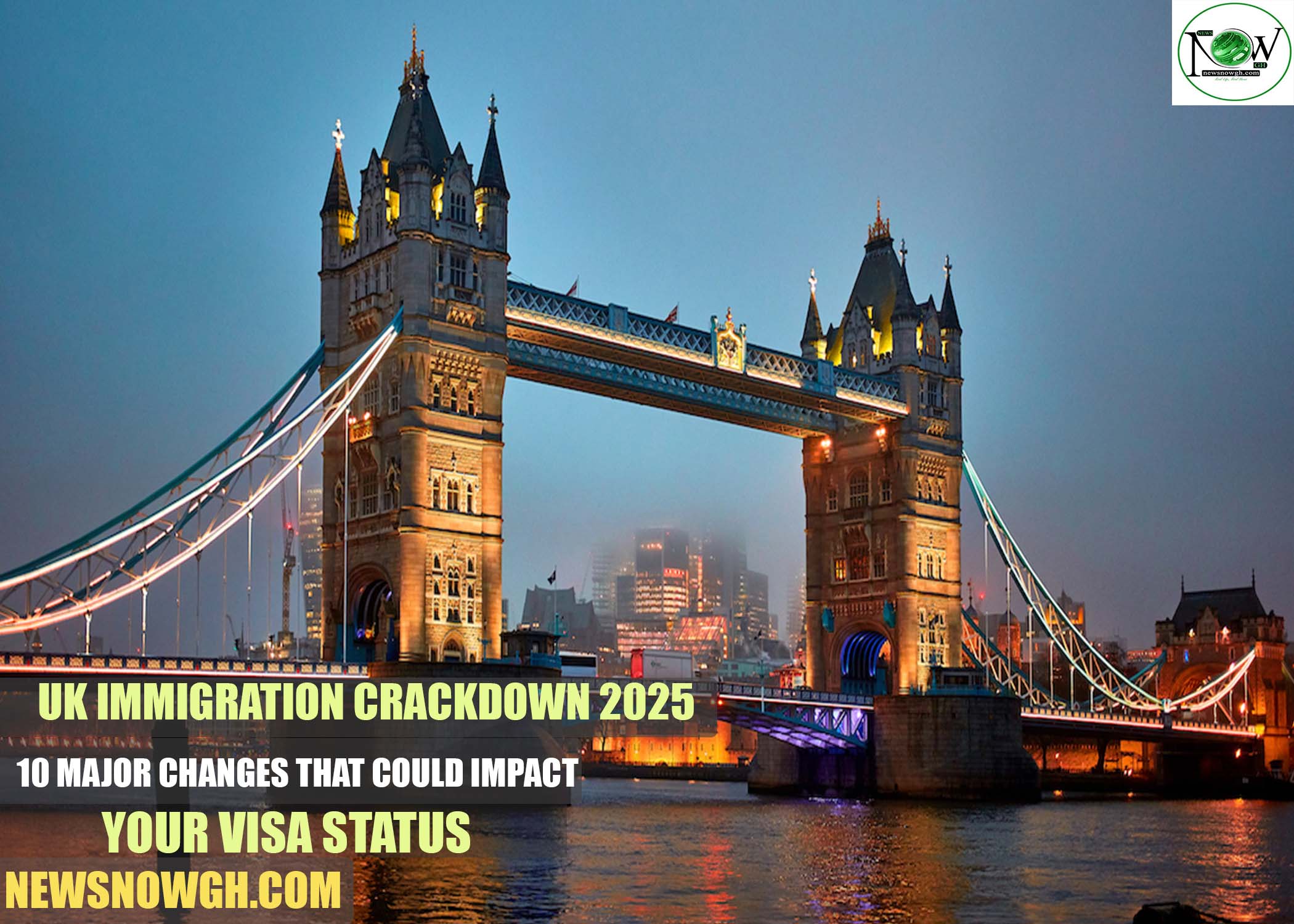UK Immigration Crackdown 2025: 10 Major Changes That Could Impact Your Visa Status
The UK government is preparing to release a significant white paper on immigration reform. This new plan will introduce major changes, affecting visa statuses for many. Here’s a look at ten key alterations expected in Labour’s immigration strategy.
The United Kingdom is set to transform its immigration system with a forthcoming “landmark” white paper. This decision arises from ongoing debates about net migration, which peaked at 906,000 in 2023 before declining last year. Home Secretary Yvette Cooper is spearheading this initiative, aiming to implement measures that will substantially reduce net migration.
Key Immigration Changes in the UK 2025 Crackdown Plan
The 2025 immigration crackdown aims to enforce stricter visa regulations and reduce net migration. The proposed white paper outlines policy changes that will affect workers, students, and migrants.
1. Faster Deportation of Foreign Criminals
The new plan will prioritize the quick removal of foreign individuals convicted of crimes. The Home Office will now receive alerts about all criminal convictions involving foreign nationals. Offenders may face visa cancellations and bans on reapplying.
2. Closure of Overseas Care Worker Visa Route
The government plans to end the care worker visa route, focusing instead on developing the domestic workforce. This shift emphasizes the need for investment in local training programs, aiming to reduce reliance on foreign workers in the care sector.
3. Tougher Skilled Worker Visa Requirements
Obtaining a skilled worker visa will become more challenging. Candidates may need higher qualifications, such as a graduate degree, and must meet increased salary thresholds. Jobs must align with the UK’s industrial strategy, and low-level roles will be limited.
4. Mandatory Training Investment by Employers
Employers in sectors reliant on foreign workers must now demonstrate investment in domestic training and apprenticeship programs. This requirement targets IT, telecom, and engineering industries, encouraging businesses to develop local talent.
5. Visa Restrictions for Overstaying Nationalities
Visa applications from countries with higher rates of overstaying may face stricter scrutiny. Nations such as Pakistan, Nigeria, and Sri Lanka will likely be under increased review, with officials examining applicants’ financial backgrounds and limiting access to public housing.
6. Longer Wait for Permanent Residency
Migrants may experience extended waiting periods for permanent residency, ranging from five to ten years. This change will affect most visa categories and may delay the path to UK citizenship.
7. Higher English Language Standards
Future work visa applicants will need to demonstrate improved English language proficiency, likely aiming for an A-level standard. This requirement will enhance migrant integration and apply to all new visa seekers.
8. Reform on ‘Right to Family Life’ Claims
The government will reassess how UK courts interpret the “right to family life” under Article 8 of the European Convention on Human Rights. This reform aims to prevent misuse of this right while ensuring compliance with international law.
9. Time-Limited Access for Lower-Level Jobs
Access to the immigration system for lower-level jobs will be restricted and time-limited. Visas for these positions will only be granted when critical shortages are identified. A new Labour Market Evidence Group will evaluate sector reliance on foreign labor.
10. Graduate Visa Route Under Review
While not explicitly stated, the government is considering changes to post-study work visas. This could reduce the two-year post-study stay, impacting thousands of international students and contributing to the goal of cutting net migration.
What This Means for Future UK Migrants
Labour’s white paper represents a significant shift in UK immigration policy, targeting low-skilled migration and visa misuse. While it aims to lower net migration and promote domestic skill development, the implications for sectors like care and technology could be profound.
Migrants and employers must stay informed and adapt to the new eligibility requirements in the coming months. Understanding these changes will be crucial for navigating the evolving immigration landscape in the UK.
Follow NewsNowGh to stay updated on the latest information regarding work permits, visas, and visa-sponsored employment.


